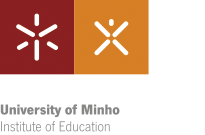Description
The Bachelor's degree in Education prepares professionals or higher education technicians with skills to work within and outside the educational system, at all levels, and in various intervention modalities (education, training, training management, mediation, etc.). As such, graduates in Education develop competencies to perform functions such as:
- Education and training for citizenship.
- Pedagogical training of trainers, design of training projects and programs, and socio-educational intervention.
- Personal, professional, and social development training, adult education, community education, and cultural animation.
- Socio-educational intervention with at-risk groups, social integration, and mediation.
- Management, coordination, and supervision in public and private organizations related to education, training, community development, including social centers and Social Security.
The Bachelor's degree in Education is structured into three scientific areas: Basic Sciences of Education, Research and Intervention Methodologies in Education, and Introduction to Professional Practice. It promotes a comprehensive human education, encompassing ethical, cultural, scientific, artistic, technical, and professional dimensions. The curriculum is designed to provide a solid foundation, complemented by a diverse set of options, and offers students the opportunity to engage with potential professional contexts from the first year of the course.

